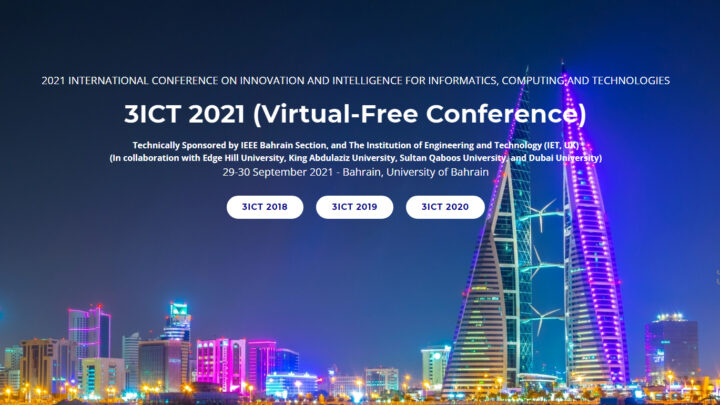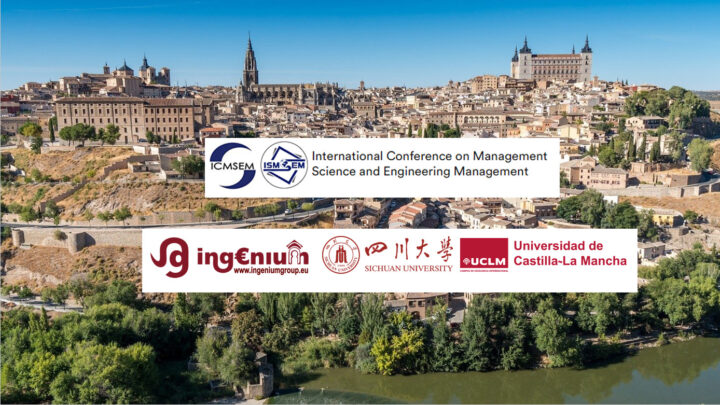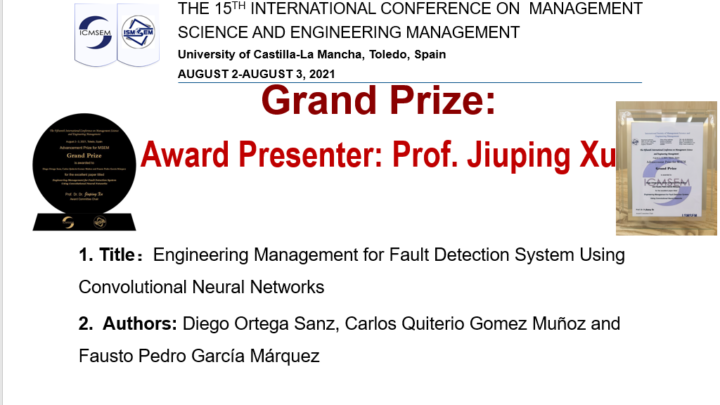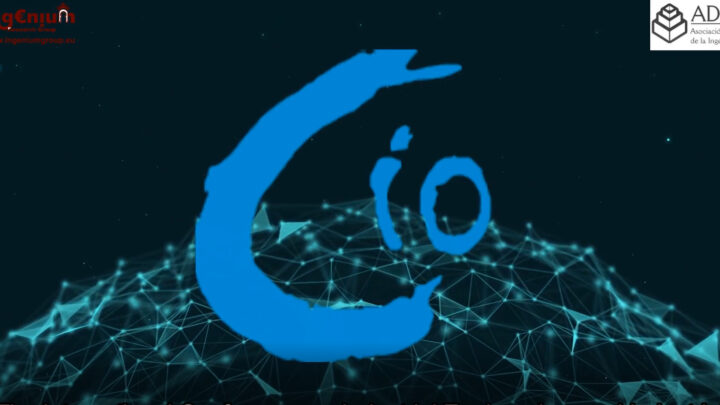Call for Chapters
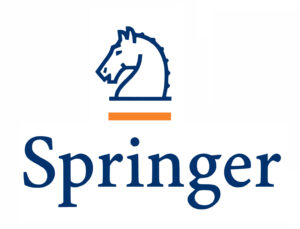
Sutainability - Cases and Studies in Using Operations Research and Management
Sustainability - Cases and Studies in Using Operations Research and Management Science Methods
Sustainability is being an important discipline for the society and governments, a research field that require the use and application in Management Science (MS) and Operations Research (OR). In this book, we will introduce the topics of MS and OR together with Sustainability. We will start with basic concept and will present cases, applications, theory, and potential future. We will invite authors to contribute chapters to the book to cover as wide array of topics as space permits. Examples will be from renewable energy; smart industry; city; transportation; home and smart devices. We will discuss future applications, trends, and potential future of this new discipline.
To appear in the series International Series in Operations Research & Management Science, ISSN: 0884-8289. FREE AND INDEXED IN SCOPUS
Please login and submit your proposal at the end of this homepage, and create your account if you do not have it
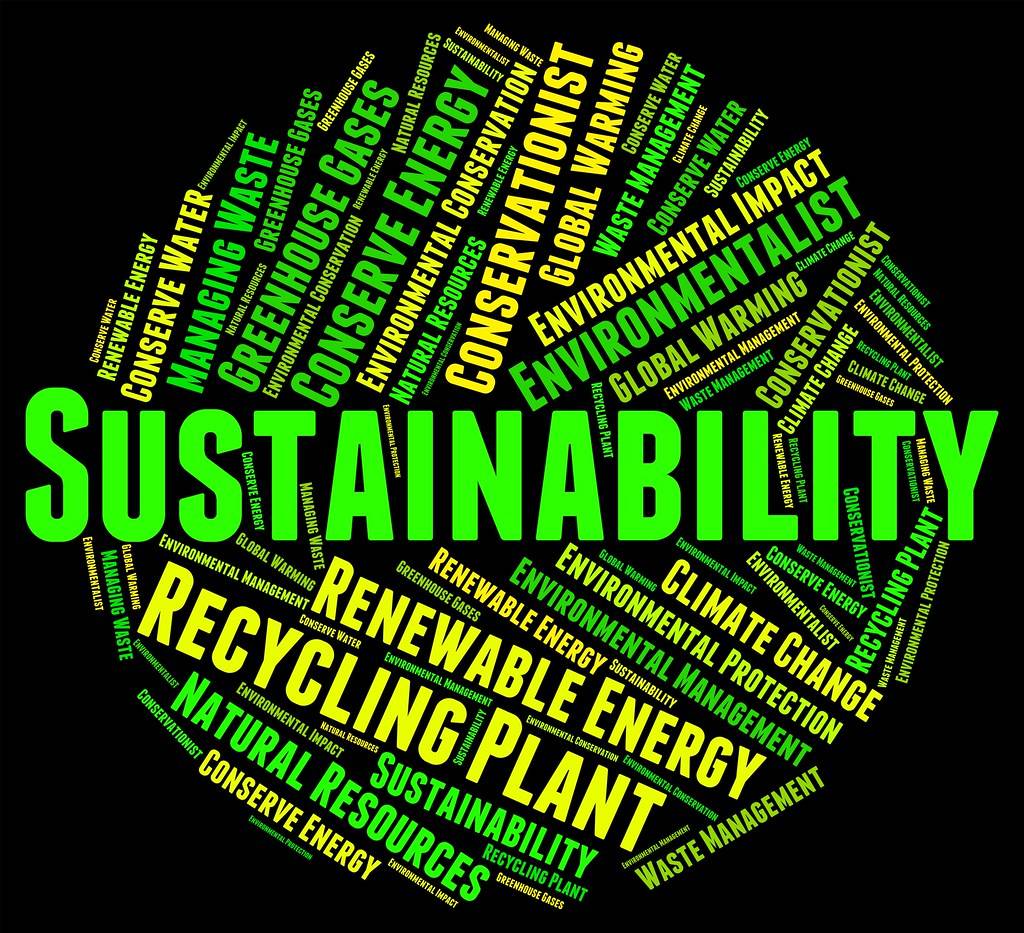


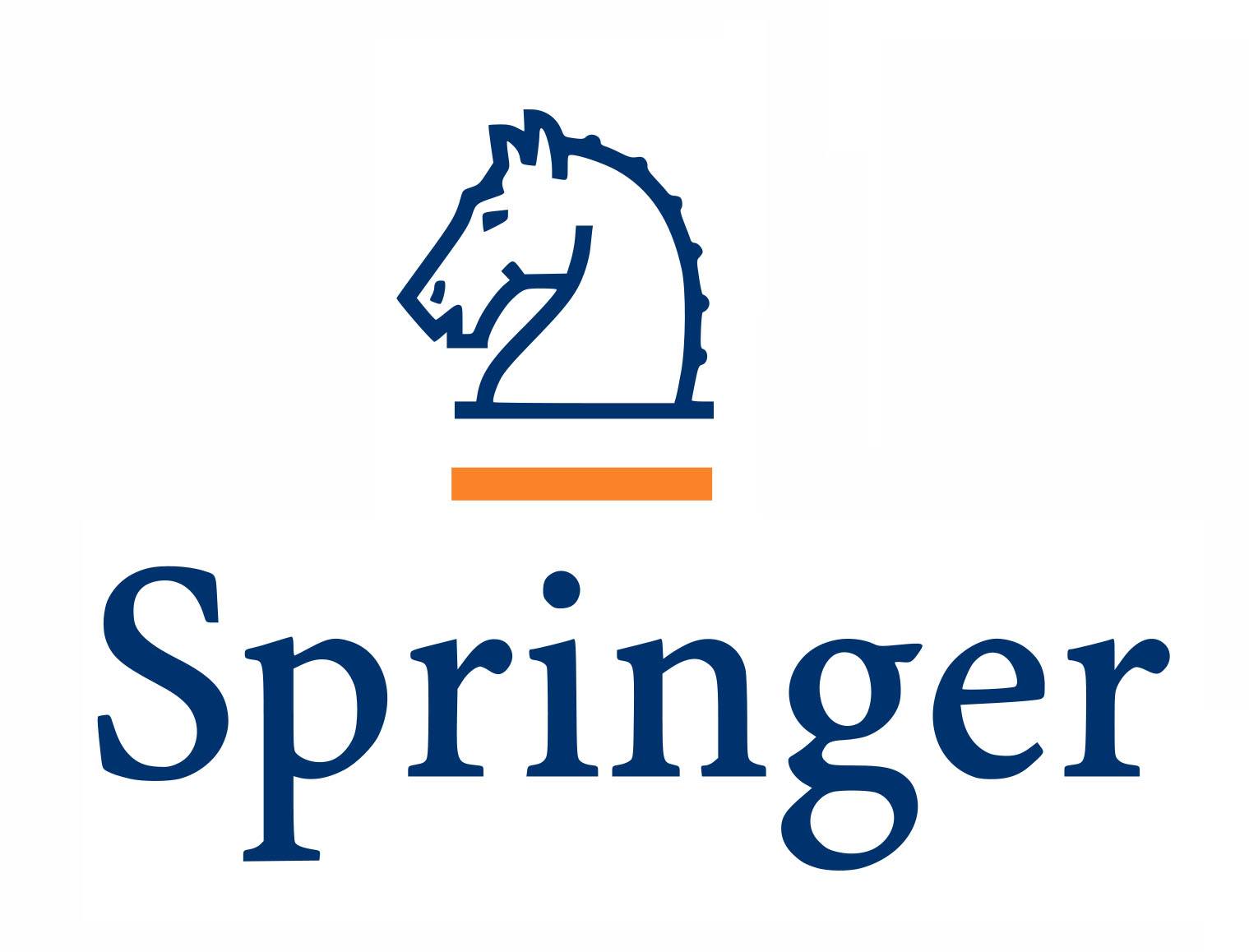




Purpose of the Book
Sustainability, a challenge for mankind for our planet, can be understood as the quality of being able to continue over a period of time, where management science (MS) and operations research (OR) are being used to that propose. MS and OR could include machine, equipment, human, animal, anything. It could transfer text, signals, media, software, etc. To build and manage sustainability, new disciplines have emerged in MS&OR such as advanced analytics, machine learning, etc. Specifically, this book will provide an interface between the main disciplines of engineering/technology and the organizational, economic, administrative, and planning capabilities of managing sustainability.
Objective of the Book
This book will aim to provide relevant theoretical frameworks and the latest empirical research findings in sustainability in Management Science and Operations Research. It will be written for professionals who want to improve their understanding of the strategic role of sustainability at various levels of the information and knowledge organization, that is, sustainability at the global economy level, at networks and organizations, at teams and work groups, of information systems and, finally, sustainability at the level of individuals as players in the networked environments.
Target Audience
This book is intended for professionals in the field of energy, engineering, information science, mathematics, economics, and researchers who wish to develop new skills in sustainability, or who employ the sustainability discipline as part of their work. The authors of this volume describe their original work in the area or provide material for cases and studies successfully applying the sustainability discipline in real life cases and theoretical approaches.
Recommended topics include, but are not limited to, the following regarding sustainability:
- Simple explanation for beginners, what is sustainability and how does it work?
- History, origin
- Applications
- Recent developments
- Technology
- Security
- New Trends
- Regulation
- Successful case studies
- Benefits, risks
- Sustainability in city, car, appliances, building, etc.
- Future of sustainability
Prof. Fausto Pedro Garcia Márquez
Fausto works at UCLM as Full Professor (Accredited as Full Professor from 2013), Spain, Honorary Senior Research Fellow at Birmingham University, UK, Lecturer at the Postgraduate European Institute, and he has been Senior Manager in Accenture (2013-2014). He obtained his European PhD with a maximum distinction. He has been distinguished with the prices: Runner Prize for Management Science and Engineering Management Nominated Prize (2020), and Advancement Prize (2018), First International Business Ideas Competition 2017 Award (2017); Runner (2015), Advancement (2013) and Silver (2012) by the International Society of Management Science and Engineering Management (ICMSEM); Best Paper Award in the international journal of Renewable Energy (Impact Factor 3.5) (2015). He has published more than 150 papers (65 % ISI, 30% JCR and 92% internationals), some recognized as: “Applied Energy” (Q1, as “Best Paper 2020”), “Renewable Energy” (Q1, as “Best Paper 2014”); “ICMSEM” (as “excellent”), “Int. J. of Automation and Computing” and “IMechE Part F: J. of Rail and Rapid Transit” (most downloaded), etc. He is author and editor of 31 books (Elsevier, Springer, Pearson, Mc-GrawHill, Intech, IGI, Marcombo, AlfaOmega,…), and 5 patents. He is Editor of 5 Int. Journals, Committee Member more than 40 Int. Conferences. He has been Principal Investigator in 4 European Projects, 6 National Projects, and more than 150 projects for Universities, Companies, etc. His main interests are: Artificial Intelligence, Maintenance, Management, Renewable Energy, Transport, Advanced Analytics, Data Science. He is being expert in the European Union in AI4People (EISMD), and ESF. He is Director of www.ingeniumgroup.eu
Professor Benjamin Lev is the University Trustee Professor at LeBow College of Business, Drexel University, Philadelphia, Pennsylvania, USA. He holds a PhD in Operations Research from Case Western Reserve University. Prior to joining Drexel University, Dr. Lev held academic and administrative positions at Temple University, University of Michigan-Dearborn, and Worcester Polytechnic Institute. He is the Editor-in-Chief of OMEGA-The International journal of Management Science www.OmegaJournal.org; Co-Editor-in-Chief of International Journal of Management Science and Engineering Management; and serves on several other journal editorial boards (INFORMS JAA (formerly Interfaces), IAOR, ORPJ, Financial Innovation, OPSEARCH, IDIM, IIE-Transactions, ERRJ, INFORMS JOR). He currently holds faculty appointments at seven Chinese Universities (Beijing Jiaotong University, Chengdu University, Nanjing University of Aeronautics and Astronautics, Nanjing University of Information Science and Technology, Nanjing Audit University, Xidian University, Tianjin University). Professor Lev is the former TIMS VP-Meetings and INFORMS VP- Meetings. INFORMS Fellow since 2003. He has published sixteen books, numerous articles and organized many national and international conferences including ORSA/TIMS Philadelphia; INFORMS Israel; IFORS Scotland; ALIO-INFORMS Buenos Aires; ICMSEM Philadelphia. https://en.wikipedia.org/wiki/Benjamin_Lev
IMPORTANT DATES
Abstract Deadline: September 30th, 2021
Full Chapter Deadline: November 30th, 2021
Final Decision of the Chapters: May 31st, 2022
As you may already know, Springer publishes your book in several formats (eBook, printed copy, ePub for iPad, Kindle edition etc.). The array of formats ensures your work can be used according to your reader’s preference and working environment. Your peers can enjoy instant access to your work from multiple locations, including library, office, home or when travelling.
To get an idea of a Springer book’s online presentation in Fulltext HTML, please look at the following (Open Access) eBook on SpringerLink, which is available for free download https://link.springer.com/book/10.1007/978-3-319-62533-1. More information on specifically Open Access publishing options can be found here: www.springernature.com/oabooks
Producing your book in several formats is reflected in the preparation of the manuscript and means that all (Word, LaTeX, etc.) manuscript files we receive will be converted to XML and re-formatted according to the Springer branded style. Accordingly, it is no longer necessary for you to spend valuable time putting the final touches to the manuscript. However, we have compiled a list of key style points on manuscript structure, figure resolution, reference style etc., which – if considered during manuscript preparation – will help facilitate and speed up the publication process for your book. For easy reference please visit the Key Style Points on springer.com. For more detailed information, please visit the Book Manuscript Guidelines on springer.com.
Furthermore, please note that all illustrations will be available in full color in the eBook but may be black and white in the printed book. If color is essential for individual figures in the printed version, please list the corresponding figures in a separate spreadsheet.
To facilitate online searching, using e.g. Google, please provide an abstract for each of your chapters. Abstracts will appear online at SpringerLink.com with unrestricted access and enable unregistered users to read the abstract as a teaser for the complete chapter.
Using 3rd Party Materials:
Please familiarize yourself with the Springer Nature Guide to Copyright and Permissions, which contains advice on including third-party content or material that you have created yourself and published elsewhere in your manuscript. Please note that we require that permission be uploaded electronically together with your manuscript. Upon submission you will be asked to declare whether third-party content is included and, if so, that suitable permission has been obtained. Your book will not move into Production unless permissions are complete and submitted and properly acknowledged in the manuscript.
Third-party content is defined as any material within the manuscript that is not your original work. Third party content may consist of text passages, figures, photos, poems, song lyrics, screenshots, etc. and be found in many places such as, but not limited to, the Internet, print and online books and articles, theses, annual reports, conference material, photocopies, course packages, and translations. In particular, you should pay close attention to sensitive images containing identifiable persons, logos, brands/trademarks, images from agencies, or from the Internet as well as text content such as song lyrics, poems, interviews, social media content and references to commercial entities.
To obtain permission to use third-party material in the manuscript visit the Rights Holder website or Copyright Clearance Center. If the material is not found, please exert your best efforts to use our Permissions Request Form and/or Release Request Form (to obtain permission from interviewees or other identifiable individuals or the owners of identifiable property in source material) for your request. If the rights-holder issues their own form, please ensure that the document they provide includes all Required Rights listed in the ‘Guide to Obtaining Permissions’ section in our Springer Nature Third Party Permissions Guidelines.
It’s a good idea to begin the permissions-clearing process as early as possible, to avoid delays to the publishing process. You may also need to negotiate with rights-holders if they do not meet our requirements. It is crucial that the rights you obtain are sufficient to cover the rights you have granted to us as publisher under your publishing agreement.
Please do run any permissions queries past us if you’re unsure.
Attached please find our „Contributor Agreement“ form. All authors submitting papers to a contributed volume must grant us specific permission to publish the work. This is a legal requirement that arises from provisions of copyright law and acts as additional protection for you. I kindly ask you to forward the form to each of your corresponding author, collect the completed forms and submit the scanned version of the Contributor Agreement along with the final manuscript so that we may start with the production of the book. Each corresponding author should print the form, enter the title of the chapter as well as the names of the authors at the top of the form and sign it. Important: details of the chapter authors (sequence, names, name and affiliation of corresponding author) given in the Contributor Agreement should be complete, final and correspond to the details given in the manuscript. As this is a legal document, we cannot accept changes at a later stage and ask for your understanding in this matter.
We strongly recommend that all chapter authors (corresponding authors, co-authors, contributing authors) include their affiliation and email address in their manuscript. Their email addresses (also published in the chapters) will be used by Springer to provide authors with a personal MySpringer account where they can download a free copy of the eBook.
Last but not least I would like to draw your attention to some other services intended to help our authors. Feel free to visit the Author & Reviewer Tutorials and find more valuable tips on publishing your book on our information pages.
Please let me know if I can be of further assistance.
INSTRUCTIONS
Abstract submission
The authors of this edited volume will describe their original work in this area or provide material for case studies which have been successfully implemented.
Interested contributors must first submit a chapter proposal (one to two pages long, up to 500 words) including an abstract.
The deadline is September 31st, 2021. Once approved by the Editorial Board, we expect the full chapter according to the Springer format and instructions. This deadline will be November 30th, 2021.
Please login and submit your proposal as follows, and create your account if you do not have it.
In case of any problem, please contact to Prof. Fausto P. Garcia: FaustoPedro.Garcia@uclm.es
LAST NEWS IN LEARNING
Ingenium participates in the International Conference on Innovation and Intelligence for Informatics, Computing and Technologies (3ICT)
The 15th ICMSEM was held online in August 2- August 3, 2021, in Toledo, Spain
Ingenium Research Group and Universidad Europea have been awarded with the Grand Prize in the International Conference on Management Science and Engineering Management (ICMSEM 2021)
Ingenium has presented different works in CIO 2021
Contact Us
- ESCUELA TÉCNICA SUPERIOR INGENIERÍA INDUSTRIAL
- ingeniumgroup.eu@gmail.com
- (+34) 926295300 (6230)
Copyright © 2020 INGENIUM GROUP.All rights reserved.
A bonis ad meliora

